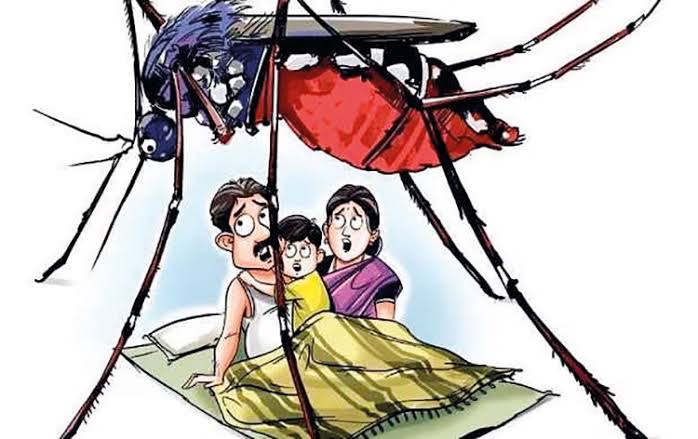A World Mosquito Day Special:
Dr Ronald Ross, an Indian-born physician, is credited with discovering that mosquitoes are responsible for the transmission of malaria. Since then we know that mosquitoes are responsible for several other lethal and disabling diseases. On World Mosquito Day we spoke to DR AMIT DIAS from the Department of Preventive & Social Medicine at the Goa Medical College & Hospital, to learn more about these vectors. He says, “If you have to win the battle against disease, one needs to know the enemy,” and throws more light on mosquitoes and why we need to fight the bite.
GOAN OBSERVER: Doctor, why do we observe World Mosquito Day?
DR AMIT DIAS: World Mosquito Day is observed annually on August 20 to raise awareness about mosquitoes and how their bites transmit several diseases. It commemorates the discovery made by the Indian-born, British doctor Sir Ronald Ross in 1897, who demonstrated that female mosquitoes are responsible for the transmission of malaria.
Before that we felt that it was caused by bad air – “mal-aria’ and that’s how malaria got its name. Incidentally, the discovery of mosquitoes as vectors for malaria took place in Secunderabad, India. He received the Nobel prize for this discovery in 1902, making him the first Asian to win the prize for Physiology and Medicine.
In India, where mosquito-borne diseases pose a significant health threat, this day serves as a reminder of the importance of mosquito control and disease prevention, and our commitment to fight the bite that affects millions every year and also leads to deaths and disability. Malaria alone kills around 600,000 people every year and dengue affects around 50-100 million every year. Currently, there is an outbreak of dengue in the state of Goa.
Q: What are the common types of mosquitoes found in India and the diseases they transmit?
A: India is home to several species of mosquitoes, each with the potential to transmit different diseases. Some notable types include:
Anopheles Mosquitoes: They are known to transmit malaria, a life-threatening disease caused by Plasmodium parasites.
Aedes Mosquitoes: These mosquitoes are responsible for transmitting diseases like dengue fever, chikungunya and Zika virus.
Culex Mosquitoes: They can transmit diseases such as West Nile virus and Japanese encephalitis.
Mansonia Mosquitoes: They can transmit Filaria
The bite of the female mosquito can transmit the disease.
Q: Why did you specifically mention female mosquito transmits the disease?
A: The female species need blood for the maturation of the eggs and in the process of taking their blood meal, they transmit the disease agent that causes disease. Male mosquitoes live on plant juices.
Q: How can one prevent mosquito-borne diseases?
A: Preventing mosquito-borne diseases involves a combination of personal and environmental measures. We call it Integrated Vector Control.
Eliminate Breeding Sites: Mosquitoes breed in stagnant water. Some species need clean water such as Aedes and Anopheles, while Culex can breed in dirty water. Regularly empty covers filled with water or treat containers that collect water, such as flower pots, overhead tanks, buckets, and discarded tires, coconut shells, etc.
Use Mosquito Repellents: Apply mosquito repellent creams or sprays on exposed skin to keep mosquitoes at bay. The species are getting resistant to it so it’s best to close doors and use screens.
Wear Protective Clothing: When outdoors, wear long-sleeved shirts, long pants, and socks to reduce skin exposure.
Install Screens: Use window and door screens to prevent mosquitoes from entering your home.
Use Bed Nets: Sleep under mosquito nets, especially if you live in areas prone to malaria. We now get insecticide-treated bed nets which are more effective.
Keep Surroundings Clean: Ensure your surroundings are well-maintained and free from clutter that could hold stagnant water.
Limit Outdoor Activities: Avoid outdoor activities during peak mosquito activity times, typically dawn and dusk.
Support Vector Control Efforts: Collaborate with local authorities in efforts to control mosquito populations, such as spraying insecticides in breeding areas.
Observe Dry Day: Not the alcohol one …. this dry day refers to emptying all the containers, and buckets surrounding your house once in 7 days. The life cycle of the mosquito is 7 days so, by observing dry days we can interrupt this life cycle and stop breeding.
Biological methods: Use fish or turtles in wells, etc, which cannot be emptied.
Children are now given the vaccine for the prevention of Japanese encephalitis. There is also a vaccine for malaria that is being used in Africa.
Special care should be taken in high-risk areas such as construction sites.
Q: What efforts are being made by the government?
A: The government has launched the National Vector Borne Disease Control Program to deal with the issue. We have managed to control filariasis which leads to the dreaded elephantiasis. We have also made significant progress towards the elimination of malaria. Control of vector-borne diseases, requires surveillance, early prompt treatment wherever possible, behavior change, and consistent action.
Q: What is your advice for our readers?
A: Do not take mosquitos lightly. Their bite can kill. Prevention is always better than cure, so do take serious steps to fight the bite and stay safe. Any fever could be malaria or dengue and one must get tested. For these diseases early diagnosis means prompt treatment which is crucial. Treatment is available free of cost at all our Health Centers in Goa.
So beware of mosquitoes! It may be a small bite but it could be a big threat!

